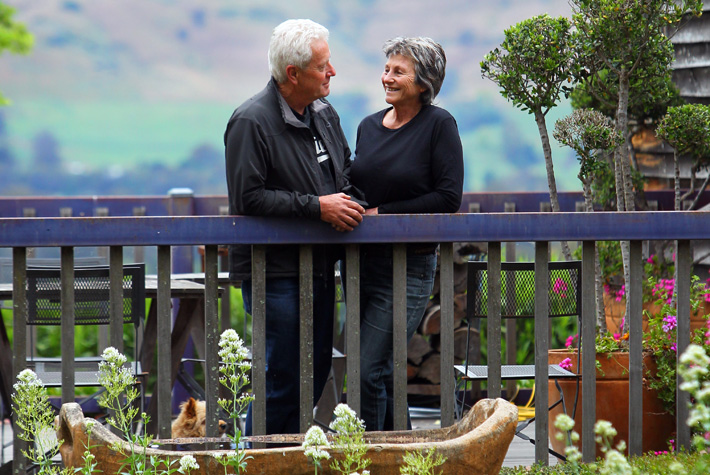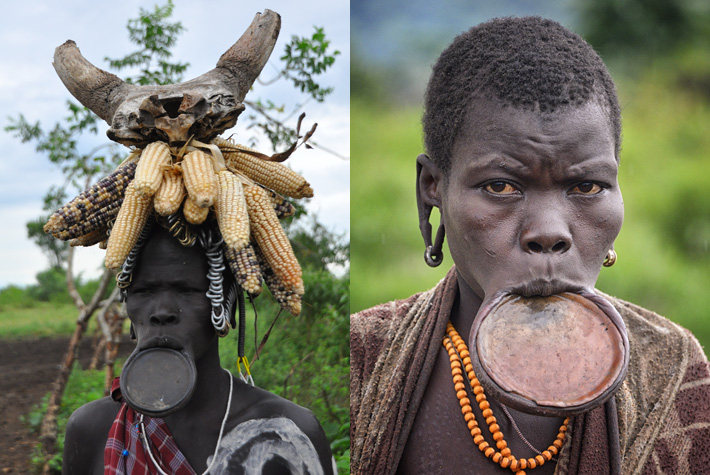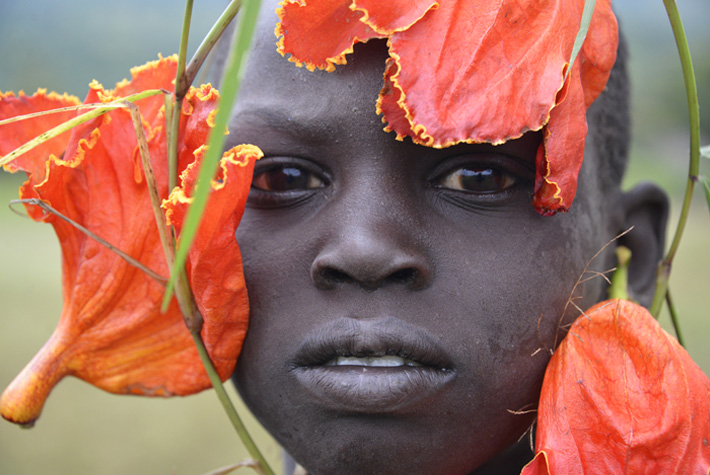Jan and Rod Waddington visit Ethiopia
Jan who grew up on the historic Kergunyah cattle property that has been in the family for 140 years, says travelling is inherent in her family and rubbed off on her.
While Rod, who grew up in Lavington, couldn’t wait to pack his bags and head off.
The couple also travelled extensively when their children, Aysha, Rhy, Lael and Eamon were growing up.
“We even named Aysha after a young girl in Morocco we met carrying water,” Jan says.
“It was easy travelling with three children but four was a bit harder, still we went all over the US and Scandinavia when they were young.”
Photography is Rod’s great love and his passion is snapping portraits whenever someone catches his eye.
He got his first SLR camera in 1976 and hasn’t stopped taking photographs since.
Many of his poignant photographs have ended up in Lonely Planet guide books and he has won Yahoo Travel photo of the day several times.
His beautiful images capture tribal members going about their every day life and reflect the harsh landscape they live in.
“I love capturing portraits of different tribes and they are usually keen to have their photos taken after you start talking to them and they see you are genuinely interested in their culture,” Rod says.
His huge portfolio of photographs include the ritual of scarification which is done with razor blades and dirt to form lumps which they consider to be of beauty.
The varied landscape from desert plains to grasslands are also well documented in Rod’s photos.
Communication is not difficult with many of the tribes speaking English and both Jan and Rod are good with languages.
One thing the Waddingtons are reluctant to do is provide direct financial aid as they have seen where much of the funds end up and often that’s not with those who need it.
They prefer to finance small projects to help the people they befriend.
“Last trip we helped two people set up businesses which helps their families and communities,” Jan says.
The projects include establishing a juice bar in Tigray and buying a van to take tours in the Omo Valley.
“We would much rather do small projects like that to help than donate money to charities,” Rod says.
Jan says she doesn’t miss the comforts of home when she is away but insists on a very thick mattress when they camp.
Stock cubes and a few cooking products are brought from home to spice up the meals she cooks along the way.
They travel lightly with a backpack each with three pairs of pants, four T-shirts, underwear, socks, shoes and a coat.
“Our luggage is often just 20 kilograms between us which is mainly clothes to give away to people we meet,” says Jan.
The couple hope to introduce others to the historical circuit of Ethiopia next year and plan to organise a small tour group.
So how do they settle down when they return home?
“We find it very difficult but we both get out into the garden and keep busy,” Rod says.
“When we do feel bored we just think back to life in Ethiopia sleeping in a little rock house on a raised platform and being woken by a donkey poking his head in the window,” Rod says.
“Life’s never boring over there, but we often think we have had more scary moments and brushes with our lives with cars on the Kiewa Valley Highway than our days in Ethiopia.
Sue Wallace
© Copyright The Finer Things





